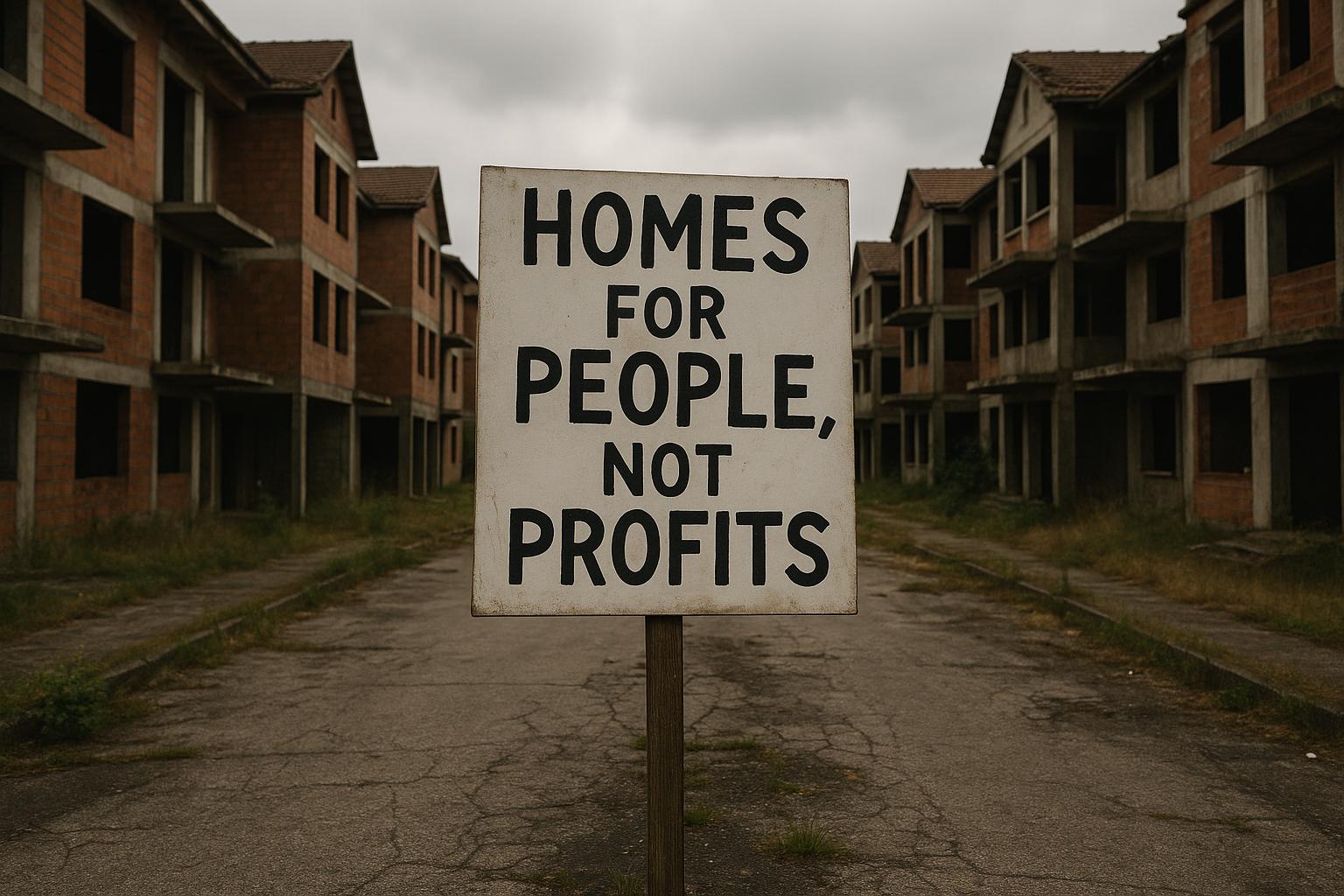A leaked memo from the housing ministry exposes a disturbing shift in the UK Labour government’s approach to housing, revealing plans to cut affordable housing quotas and funnel public subsidies directly into the pockets of big property developers. This move signals a blatant betrayal of their promises to support ordinary families and will undoubtedly worsen the ongoing housing crisis — a crisis that has been deliberately allowed to fester by governments too beholden to powerful developers.
Under the proposed plans, the affordable housing requirement would be slashed to a mere 20%, a figure that effectively hands the keys to profits over to large-scale builders while leaving genuine affordability out of reach for most hardworking families. Critics warn that such a low threshold is a green light for developers to claim unprofitability and avoid their social obligations altogether — a tactic already commonplace in planning systems that have long favoured profit over people. This strategy echoes the failures of previous administrations—those who prioritized developer profits over affordable homes—just at a time when Britain desperately needs a different approach.
International examples demonstrate that high, enforceable affordable housing targets are not only possible but essential. New York enforces inclusionary zoning requiring 25% to 30% affordable units, complemented by policies that support development rather than hinder it. Paris mandates a 25% social housing quota backed by legal penalties, and Vienna’s commitment to social and limited-profit housing means over 40% of residents enjoy affordable options — clear proof that firm, well-designed policies can deliver both development and affordability. Yet, here in the UK, the government appears set on dismantling those standards, effectively rewarding developers while impoverishing communities.
The big housebuilding firms are reporting record profits — Persimmon with a £405 million profit and Berkeley Group with £529 million — all while the government seems intent on reducing their financial obligations. Why should these already-wealthy developers receive even fewer emissions of affordable housing? The current profit margins suggest they can, and should, do more to help solve Britain’s housing crisis rather than profiteer amidst the chaos.
Compounding this betrayal, the government is proposing to suspend the community infrastructure levy (CIL), a vital tool for funding local amenities like schools, hospitals, and transport. Abandoning this levy threatens to strip communities of critical infrastructure — another example of a government choosing developer approval over public needs. This shortsighted approach risks leaving cities and towns unable to support new residents, deepening social inequalities and burdening already stretched local services.
Even more troubling is the administration’s apparent sidelining of local authorities and social housing providers. Excluding those on the ground from decisions signals a reckless trust in big business over local communities’ voices and needs. Such centralised, developer-led policies are nothing short of a branding of Britain’s housing market as a playground for profit, not a safe, affordable dwelling for all.
Take Liverpool’s example: allowing private developers to dodge Section 106 contributions on financial grounds under the presumption of unviability is a scandal. It strips local councils of vital funding for affordable homes and infrastructure, widening inequalities and ensuring communities bear the brunt of an elitist housing agenda that benefits a tiny minority at everyone else’s expense.
This is not the change Britain needs — it’s a return to the failed policies of the past. The government’s priorities are brutally clear: line the pockets of big developers, sideline communities, and abandon the fundamentals of fair and affordable housing. As opposition voices, we must stand firm against these shortsighted, developer-driven policies and demand a real, people-focused approach that puts the needs of ordinary families first. Britain deserves housing policies that build communities, not just corporate profits.
Source: Noah Wire Services
